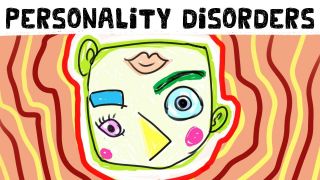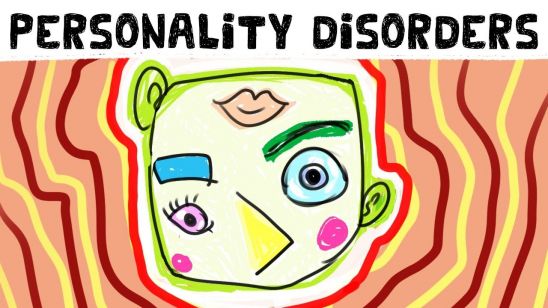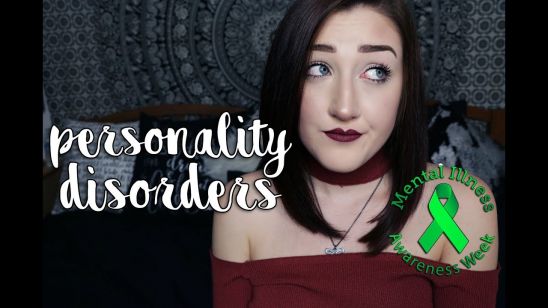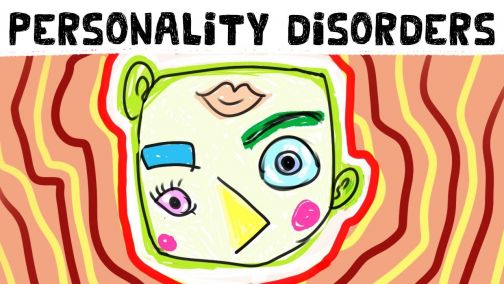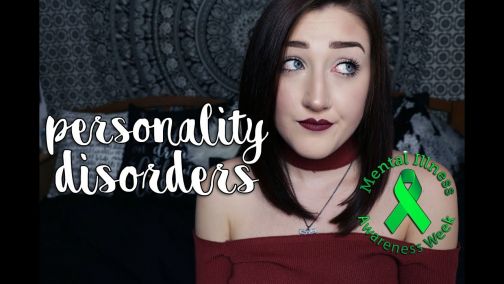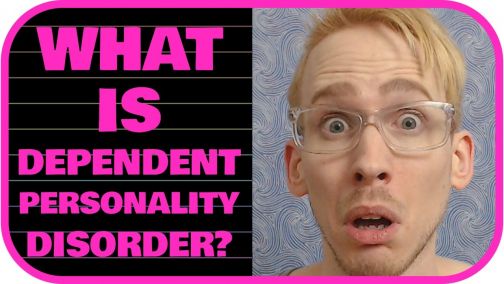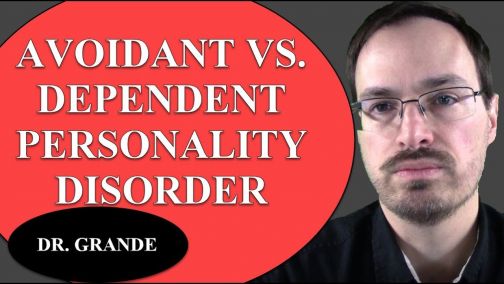Dependent Personality Disorder
Also known as DPD
What is it?
Personality disorders are deeply ingrained patterns of behavior that violate social norms and cause problems in interpersonal relationships. They are broken into three categories — Cluster A, B and C.
Personality disorders are previously known as axis two disorders — a group of conditions that impact a person’s function in relation to others. They are ego-syntonic, meaning a person with a personality disorder often doesn’t believe they have a problem. The disorder is consistent with their world view, perception of others and perception of themselves. They usually begin during a person's teenage years or early adulthood, and in some cases, become less obvious in middle age. It is common for people with one personality disorder to have symptoms of another.
Dependent Personality Disorder, also called DPD, is a Cluster C disorder. Cluster Cs are characterized by anxious or fearful behavior. People with DPD are extremely needy and dependent on the care and validation of others. They are afraid of being alone, and use submissiveness to get other people to take care of them or make decisions on their behalf.
DPD often occurs alongside other mental health conditions including major depressive disorder, anxiety disorders, substance use disorders and other personality disorders like histrionic or borderline. It’s estimated that around 2.5% of the U.S. population has DPD, although other estimates say it’s much higher. It is slightly more common in women than men.
What are the symptoms?
People with DPD are emotionally overdependent on others and go to great lengths to please. They often see themselves as inferior, weak or incompetent. They fear being abandoned or asked to do things on their own, and don’t get angry at people when they’ve been wronged.
Additional symptoms include:
- An inability to make decisions, no matter how simple or small
- Avoiding adult responsibilities by acting helpless
- Being dependent on the guidance of a family member, friend or spouse
- Having an intense fear of rejection of abandonment
- Feeling helpless when relationships end or moving on extremely fast
- Being overly sensitive to criticism
- Lacking self-confidence and being self-deprecating
- Avoiding confrontations or disagreements with others
- Struggling to start or finish tasks
- Having trouble being alone
- Being willing to tolerate mistreatment and abuse
- Placing the needs of others above their own
- Being generally naive
What are some common warning signs?
DPD is characterized by submissive behavior, a lack of self-confidence and abandonment fears. Because of this, a loved one with DPD might display noticeable symptoms at home, at work or in social settings. Pay attention to their social habits and relationships with others. Ask yourself the following questions:
- Do they refuse to go to events alone or hang out one-on-one with people?
- Do they become panicked when asked to make a decision or work on something?
- Do they let a close friend, family member or romantic partner make all their decisions for them?
- Do they often put themselves down?
- Do they let people yell at them without fighting back?
- Do they have a very small social circle?
- Do they act helpless or clueless so others will help them?
- Do they struggle to perform everyday tasks, such as cleaning, running errands or doing bills?
None of these behaviors confirm a DPD diagnosis, but they do hint at one. If you feel comfortable doing so, talk to your loved one about this behavior and why you’re concerned. Keep in mind that symptoms aren’t always obvious. People battling chronic mental health conditions often learn to hide their pain from others. It’s possible to appear outwardly fine, while facing mental difficulties in secrecy.
What causes DPD?
The exact causes of DPD are unknown. Doctors believe a range of factors play a role in its development, including being genetically predisposed (i.e. other family members struggle with DPD or other mental disorders), being raised by authoritarian/overprotective parents, experiencing separation anxiety during childhood, or being exposed to chronic physical illnesses.
How is it treated?
The primary treatment method for all personality disorders, DPD included, is psychotherapy (aka talk therapy). Cognitive Behavioral Therapy (CBT) is commonly recommended. Additional options include Psychodynamic psychotherapy and group therapy. The main goal of this therapy is to make the individual more independent and help them form healthy relationships with the people around them. This is done by improving their self-esteem and confidence.
Medications are not commonly used to treat personality disorders. However, given that anxiety is a cornerstone of DPD, antidepressants such as SSRIs or SNRIs, and anti-anxiety medications (aka Benzodiazepines), may be recommended.
It’s important to remember that treatment plans are personalized. If you’re seeking help, make sure you work one-on-one with a doctor to create a plan that fits your needs. Just because a medication or therapy helps someone else recover, doesn’t mean it’ll be the right solution for you. Don’t ever feel guilty about asking for help, taking meds or going to therapy. Addressing your mental health is a productive and courageous thing to do.
How is it treated?
Caring for someone with DPD is not easy. They may be extremely sensitive and overly dependent on your approval. It’s important to remember that their insecurities have nothing to do with who you are or how much they care about you.
It can also be hard to know how to support them. Do they want to talk about their behavior? Will they push you away if you try to help? There are no easy answers to these questions. Every person handles their mental health differently. That said, we all want to feel loved and supported. Showing someone that you’re invested in their wellbeing can make a world of difference.
Here are some ways to do so:
- Educate yourself: Read up on symptoms, treatment options, and healthy living recommendations. Try and understand what your loved one is going through so you are better equipped to talk to them about it. This will also make you a valuable resource when it comes time to find treatment.
- Advocate treatment: Asking for help can be hard. Societal stigma often keeps people from opening up to others about their symptoms. Support your loved one by helping them research different treatment methods, or doctors in their area. If they’d like, go to a few sessions with them. Remind them that there’s nothing weird about getting help, and that you’re proud of them for following through.
- Tell them you care: Let them know that you love them and are there for them. Compliment them when they look good or do something well. People with DPD are often self-conscious and insecure. These acknowledgements will be reassuring.
- Set boundaries: You want to be understanding of their symptoms, but that doesn’t mean you have to put up with everything. Make rules for what you will and won’t tolerate. Stick to these boundaries and follow through on consequences when they’re broken.
- Be patient: Don’t take it personally if they lash out at you. They are battling something that’s very hard to overcome. Their distance has nothing to do with who you are as a person. Keep showing up for them even when it feels like it’s not helping. The act alone lets them know that they have people in their life who care.
What other resources are out there?
Want to learn more, find a doctor, join a support group or speak to a counselor? The below resources might be able to help:
- New England Personality Disorder Center
- Emotions Matter
- Crisis Text Line
- BetterHelp
- Psychology Today Directory
- American Psychiatric Association
- Medicaid Eligibility Information
- Open Path Collective
- Resources for POC, LGBTQ+ and disabled individuals
- Anxiety and Depression Association of America
- National Network of Depression Centers
- Medicine Assistance Tool
- NeedyMeds
- Erika's Lighthouse
- Anxiety Network
- Anxiety Central Forums
- National Social Anxiety Disorder Center
- International Society for the Study of Trauma & Dissociation
Support our work
We’re on a mission to change how the world perceives mental health.

